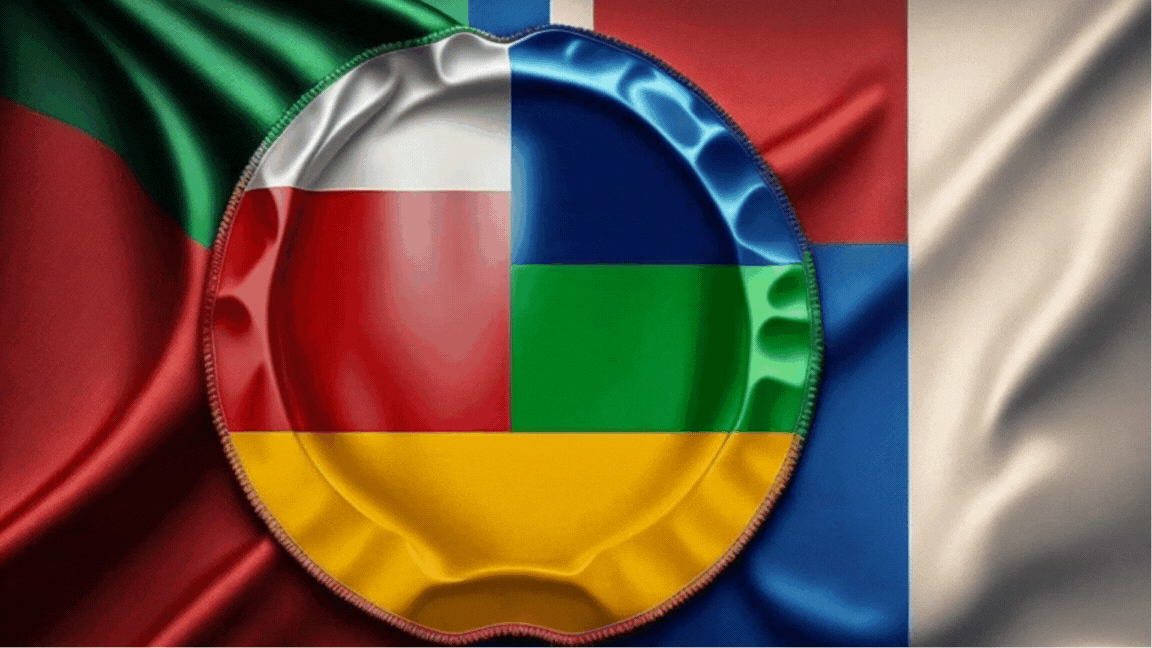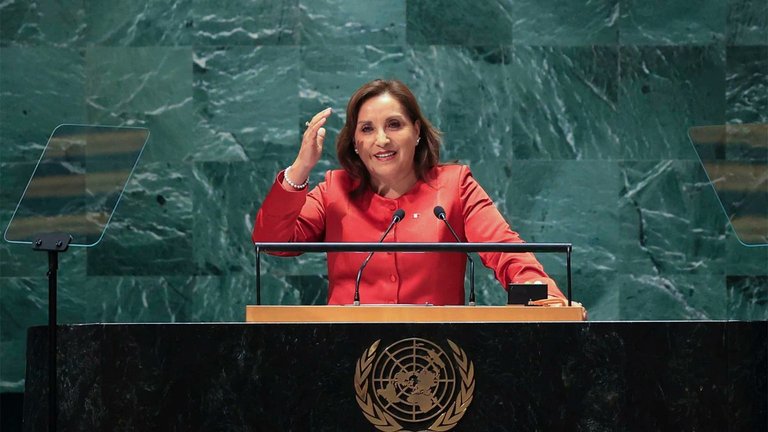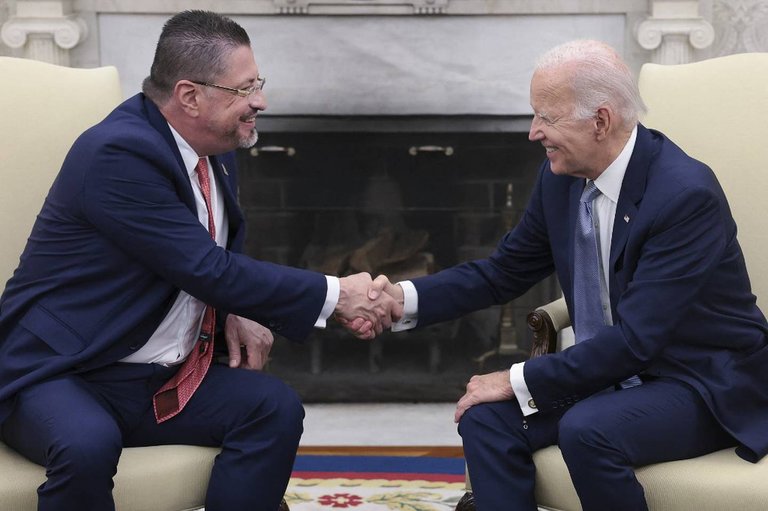The Latin American Report # 81

Edited with Canva.
Perú
It has been a while since we last visited this Andean country, where an institutional crisis with an impact both inward and outward—México, for example, doesn't recognize Boluarte—continues its development, sometimes in a "silent" way, while the concrete quality of life of the people continues to deteriorate. The discourse of the "leaders" goes one way, and the popular realities go the other. Although the latter is not only a Peruvian problem—nor is it the alleged corruption that brought down the presidency of Pedro Castillo—, but we have recently identified it in México—through a not very common criticism here of Andrés Manuel López Obrador—, and also in Ecuador, in the face of a quite shameless facelift by none other than the Secretary General of the Organization of American States about the management of the out-going President there Guillermo Lasso (although I have said it in my specials, I also reiterate that it is a dynamic that also manifests itself, and a lot, in Cuba).

The disputed Peruvian president Dina Boluarte speaking at the UN (source).
There is no shortage of self-congratulation from those in power today in Lima, and yet, "the data kills the telling". Measured year-on-year, the number of Peruvian citizens who hit rock bottom in terms of food availability during the previous quarter rose 13 points to 57%. As always, the rural area takes the worst part (there the figure rises to three-quarters of the population), but the 48% recorded in the capital city itself is still a very worrying figure. It also seems to me that it is worth analyzing that the age group with the most significant difficulties is between 25 and 39 years of age, which would be the sector with the most significant productive responsibilities. According to the pollster in charge of providing these data, which I reviewed via EFE, all this is reflected in an exponential increase of malnutrition problems, with the child population as a very sensitive group, experiencing anemic conditions in representative figures.
The Venezuelan government's incapacity has an impact on its neighbors
When we spoke recently about the Tren de Aragua (the "Aragua Train"), the criminal mega-organization that was run from the Tocorón prison in Venezuela, and which was dislodged last week, we commented on how it had been branching out for some time throughout the region, mainly in Colombia, Perú, and Chile. To begin with, the same dynamic of impunity that had its leader in the penitentiary—where everything from a swimming pool to a zoo was built, and the family members who lived there felt better off than in the street—is somehow reproduced in Perú, as reported by the EFE news agency, citing a local newspaper.
One of the Venezuelan "pranes" of the Aragua Train, from a maximum security Peruvian prison, located in a remote area of the country, orders through audios—I guess via WhatsApp—murders, directs the distribution of drugs and the fight for the spaces for its commercialization, among other serious crimes. From here it follows at first that he has access to communications via mobile data networks, which should not happen, but is the norm in these countries. Then, Peruvian authorities have announced a reward of just over US$130,000 for anyone who provides sound information on the tentative arrival of Niño Guerrero to the country, something that other countries are also on the alert for. It is Caracas' irresponsibility in negligently allowing him to escape from Tocorón that is now putting a strain on security forces throughout the region. Hope he doesn't bring more pain to any other location here and is captured ASAP wherever he could be.
Costa Rica
This nation is in the middle of the growing tension between China and the United States in technology matters, with cybersecurity as a critical issue when making decisions, which for now seem to tilt the balance in favor of cooperation with the North American power. At the beginning of this month, Costa Rica promoted a regulation that, although in principle is "not directly" oriented to the Asian giant, the country's leaders are fully aware that when they signed it, they were placing themselves directly against the commercially legitimate interests that Beijing has in the deployment of 5G there. The Budapest Convention of 2001 on cybercrime is the particular instrument San José has chosen to define who enters this market in the country, to which China is not a signatory, unlike the United States.

Costa Rican president Rodrigo Chaves with Joe Biden at the White House last August (source).
Why not? Well, I believe that one reason that China could perfectly argue for not being there is that the referred convention is based on a very European consensus. In essence, from the heading—and this is no small thing in politics—it is made clear that it is an instrument of the Council of Europe to which other parties adhere. The timing of the Costa Rican decision is also interesting because they could have regulated this issue much earlier, I think. However, they do so a few months after the Export-Import Bank declared its positive propensity to issue a $300 million credit to acquire equipment and services "from trusted vendors"—read: the suppliers vetted by the United States—in the deployment of the 5G network. In his recent visit to Washington, President Rodrigo Chaves showed clearly which side he had chosen: he is dancing to the American music here. There's nothing wrong with that, but I still find it unfortunate how the White House—with the entire ministerial train on task—and Capitol Hill openly pressure countries to cut or limit their ties with China as if this boils down to a good actor/bad actor theory.
Your quick regional roundup
The Brazilian judiciary is in the business of holding large companies accountable for cleaning up their supply chains in terms of a zero-tolerance policy on child/forced labor. This is proved by a recent fine of just over $120,000 levied against Cargill for the purchase of cocoa produced with human beings who are —in the 21st century— under that yoke yet. The multinational washes its hands of the matter and says it has no way of ensuring whether the product comes from crops where this practice occurs. Shame on it.
Taking advantage of relatively cheap visas, African citizens are flying to Nicaragua to follow the Central American route to the United States, skipping the dangerous Darién Gap that divides Colombia and Panamá. The dynamics will be officially disclosed on Wednesday in a report by a U.N. agency, reviewed by Reuters. The publication will give an account of a trend that we have already discussed here in the Cuban case, but which now is also shown to welcome Africans arriving from Mali or Senegal. In the case of Cubans, let's remember that they have free visas to Nicaragua.
This is all for our eighty-first report. I have referenced the sources dynamically in the text, and remember you can learn how and where to follow the LATAM trail news by reading my work here. Have a nice day.

Edited with Canva.

Yay! 🤗
Your content has been boosted with Ecency Points, by @limonta.
Use Ecency daily to boost your growth on platform!
Support Ecency
Vote for new Proposal
Delegate HP and earn more
Awesome work for sure!